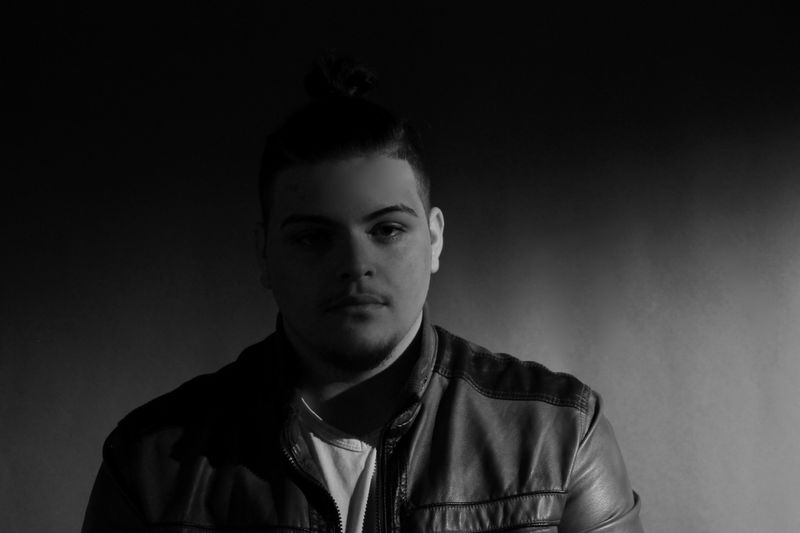We Are America
Blindness and Sorrow
By Ricardo

Lowell High School, Lowell, Massachusetts
I was born in a small island in the middle of the Atlantic called Terceira, in the Azores. Growing up on the island, I had a group of friends called the Rascals of the Bastard Fountain (“Fonte do Bastardo Parish” in Portuguese). We were the parish troublemakers. When we were ten years old, we would always be playing together, laughing at each others’ jokes, riding bikes, playing soccer, anything you could imagine. Looking back on what we did makes me laugh. We would do all sorts of dumb stuff. We would throw water balloons at cars, or sneak into someone else’s farm and eat apples, peers, grapes, oranges, and watermelons. We were always in trouble. It was a perfect childhood.
We were like brothers, but all different colors. Some of us were lighter skinned, some of us were darker skinned. None of us cared. One of my friends was black, but I didn’t understand that some people saw this as different. On our island many people were laborers, working many hours under the heat of the sun, which made their skin very dark. So I didn’t really care or think about colors on the island, because everyone had different shades of dark skin.
One day we Rascals were playing. Another group of teenagers came over and started being jerks. They hid in the bushes and threw rocks at us. As we were running away, I heard, “And this is for you, you black bastard.” Two seconds later, I saw my black friend on the ground crying with blood on his forehead.
We grabbed sticks and rocks to fight them. It was a disaster. We were all fighting. Then a goat herder showed up and yelled at everyone to stop. He even threw one of the older kids to the ground for hitting us smaller kids. The goat herder looked at my friend’s head and sent him home to get the cut cleaned so it wouldn’t get infected. We ran towards our bikes and took off.
That day stayed on my mind for a long time. I just didn’t know the reason why those older boys did that to my friend. I didn’t understand why they targeted my friend who was black instead of me or one of the others. It didn’t make sense.
When I was 12 years old, we moved to the United States. I didn’t want to go. On the Island you could have as much freedom as you would wish for. It was a kid’s paradise. Yet even though I didn’t want to go, at the same time, I did: it’s hard to leave a country you have built all your life on, but I also accepted that the United States was my future.
A few weeks after I arrived, we drove to have breakfast at Dunkin’ Donuts. I saw two guys arguing. One man was black and the other was white. The white guy was saying so many ugly, racist comments. I was stunned. It hit me. I was really shocked because suddenly I remembered everything that happened to my friend back home. I realized for the first time that the jerks back home hadn’t fought us only to be annoying, but they had attacked my friend because of his skin color. I felt so guilty for not realizing this sooner, and so disappointed and ashamed to be part of this world. I realized for the first time I had been blind to the racism around me. At the time I was new in America, and I felt hopeless and useless.
Five years later, I feel I now see how I can help address racism. I want to teach the next generation to think differently and to act differently. I feel like that is my responsibility. We are all equal. We all have the same color of blood. We are all humans.
© Ricardo. All rights reserved. If you are interested in quoting this story, contact the national team and we can put you in touch with the author’s teacher.